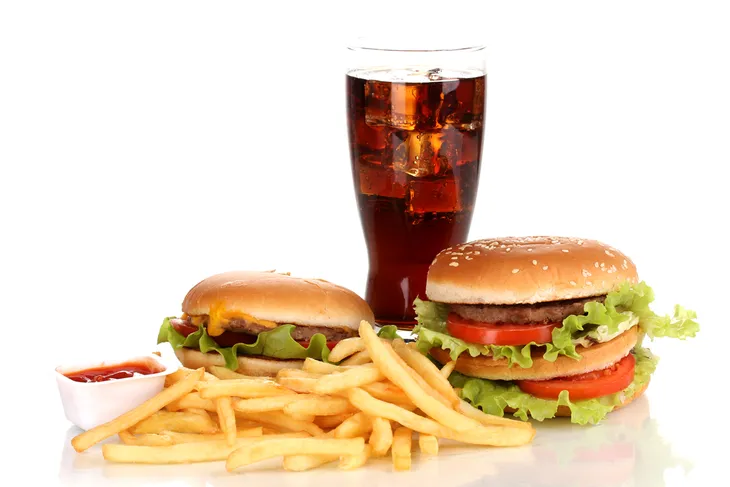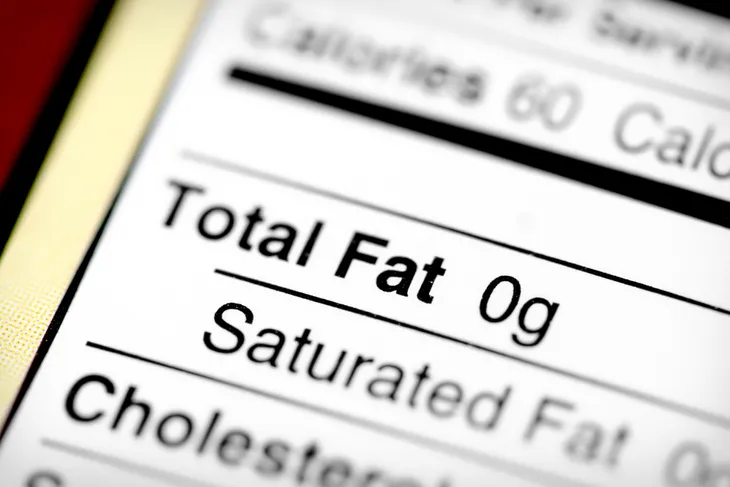As long as society rewards and celebrates thinness, there will always be fad diets and weight loss strategies promising quick and amazing results. There are times when we want something so desperately we will believe anything even if it goes against common sense.
From weight loss competitions to meal supplements, we will ignore what is fact if it means the possibility of wearing skinny jeans again. The following list examines the more common myths that continue to thrive and enjoy a large following (ultimately resulting in tears, shame, and weight gain once again).
Cheat Days
There are many “diets” that support the idea of picking one day of the week to become our day of eating whatever we desire. The belief is, if we are able to enjoy a bag of chips on our cheat day, we won’t feel as deprived during the week. Unfortunately, these cheat days can accumulate a hefty number of calories that may, overtime, lead to weight gained versus weight lost.
Additionally, if we are assuming we will burn these extra calories off with exercise, the reality may be disappointing as we tend to overestimate the calories burned during work outs. By focusing on a consistent healthy diet we may also reduce the cravings and keep us on the right track (without having to abuse exercise). Moreover, a diet that leads to feelings of deprivation will only lead to binge eating and weight regain.
Exercise as a Weight Loss Tool
Exercise programs have never been so popular on social media. We can’t throw a dumbbell without hitting the latest in strength building and tummy flattening. More recently, research has suggested that adding exercise to our lifestyle, although great for health, may not reap the weight loss benefits we might expect.
Between hormonal changes due to aging and pre-existing injuries getting in the way of the necessary intensity, exercise by itself will be least effective. A combination of healthy eating and physical activity may result in weight loss overtime, but it is important to consider the enjoyment and potential for longevity when choosing an appropriate workout.
Low Fat for Fat Loss
It is becoming more understood that eating fat does not cause us to get fat, but many low fat die hards are still clinging to the age old belief that it does. This is most evident when shopping for a high fat yogurt amongst the low fat or fat free (highly processed) options.
A study published in the Annals of Internal Medicine suggests that a low-carbohydrate diet is more effective for weight loss than a low-fat diet. Whole, natural fat is a necessary part of a healthy diet and needed for energy and the absorption of certain vitamins. So the next time there is a choice between low-fat and whole fat, take the risk…the results may be surprising.
Fat Lost is Lost Forever
Why is it that we approach each weight loss program like it is going to be our last when the research suggests over 95-percent of us will gain it all back again? Is it hope or denial or could this be a form of insanity if we were to define insanity as doing the same thing over and over again expecting a different result?
The research is clear that those that lose the weight will, eventually, find it again over the course of five years. When approaching a lifestyle change to lose a few pounds, we might start by asking ourselves if this is something we can continue for the rest of our lives. If not, move one and find strategies that are enjoyable and realistic.
Weight Loss Contests Work
Weight loss contests continue to grow in popularity largely due to the popular television show that pits people against each other in a race to lose hundreds of pounds in very little time. Not only is this practice dangerous but it may lead to feelings of shame, guilt, and other mental health issues like depression and suicidal thoughts when the weight returns.
Weight loss contests promote disordered eating and exercise abuse and, while they may lead to weight loss, are not sustainable over longer periods of time. While the “loser” may believe these contests will keep one accountable and provide the motivation necessary, these benefits are fleeting and will only lead to disappointment.
Spot Reduction is Key
If social media sites are any indication, a belief in spot reduction is back with a vengeance. Spot reduction, something popular in the 1980s, is a belief that if we exercise one part of the body we can reduce or eliminate the fat around that part. For example, it wasn’t too long ago that we would perform 100 sit ups to achieve a flat stomach. While the rectus abdominis may be stronger because of our efforts, the fat lying on top will not budge.
The good news is we can stop performing 100 donkey kicks a night and the bad news is our past efforts have been in vain. Spot reduction is one of the biggest myths of the fitness industry while it still enjoys popularity to this day.
Caloric Restriction is Necessary
Still an assumption for many when considering a fat loss regime, caloric restriction is still believed to be a precursor to living the lean life. Although research supports the notion that a restriction in calories leads to weight loss overtime, it can also lead to food binges, overeating, and eating disorders including anorexia, if applied in extreme ways.
Interestingly, a study published in the Journal of the American Medical Association suggests that low calorie diets may slow down the metabolism leading to less weight lost than a higher calorie diet. The research findings also go on to question the notion that all calories are created equal. If this is the case, we may find an eating plan that leaves us feeling full while leading to weight loss overtime.
Willpower
What happens when we fall off the fat loss wagon? We tend to blame it on our lack of willpower or self-control, but is this really the case? Is there such a thing as will power when we have various forces acting against us? Factors like stress, lack of sleep, mental illness, and environments full of fast food options can all have a negative influence on our attempts at weight loss.
Research examining the bio-psycho-socio-cultural influences of weight gain and loss strongly suggests that we are not so in control of our eating and exercise behavior as we think we are. Instead of self-blame, it may be more constructive to look at the influences around us that may have motivated our lapse and keep it in mind when we get back on that wagon.
Weight Loss is Healthy
With health promotion campaigns and programming so focused on reducing the waistline of North Americans, in the end, will it really improve our health? For those carrying a heavy load, weight loss programs must be slow and steady or the risk of heart complications may increase. For others that chose to bariatric surgery, weight will be lost without the need for a change in diet or physical activity and that, according to the research, may lead to more negative health outcomes than once thought.
Paul Compos, author of “The Obesity Myth” includes a wide range of studies supporting the idea that being overweight, and even obese, does cause illness, a lifetime of unhealthy foods and a sedentary lifestyle is the cause chronic disease. Linda Bacon, author of “Health at Every Size” shares similar accounts and suggests a focus on health will result in greater health benefits than a focus on fat.
The Faster the Better
It’s a fact that programs promising fast (and easy) weight loss will be more successful at recruiting customers than those that focus on lifestyle changes over longer periods of time. For that reason alone, it’s hard to find a successful health promotion campaign when all people want is a 10-pound loss in 10 days flat.
The cruel truth of the matter is weight lost quickly will be found quickly. Because of this faulty belief, many people have gained even more weight overtime and given up on trying again. Sustained fat loss is more apt to occur when pounds are lost slowly. This gives the “loser” a chance at making positive lifestyle changes that will stick.
Junk Food is Bad
The first step in cultivating a disordered relationship with food is labeling foods “good” or “bad.” We see it in the media, in our schools, in our health promotion campaigns, and in those irritating pop ups on-line. The fact is, there is no such thing as a “bad” or “good” food. It’s how we use food that can have positive or negative effects on our health.
Junk food has been given a bad rap and could be part of a healthy diet if applied in moderation. Understanding that many of us are unable to control our consumption of chips when given the chance, it may be dealing with this “all or none” approach to food that needs attention instead of black listing junk food altogether.
More Exercise is Better
If exercise is good for us and can influence weight loss, then it stands to reason that more is better. This last belief can not only add to one’s frustration when expectations aren’t met but can lead to exercise addiction and serious overuse injury.
Although the trends noted in the fitness industry lean towards high intensity training, research is showing us that exercise, like everything else, should be taken in moderation. The return on our investment is greater when we engage in physical activity (i.e. walking) for 30 to 60 minutes. Adding on more time, more intensity, and more exercises may lead to more tears than joy.















